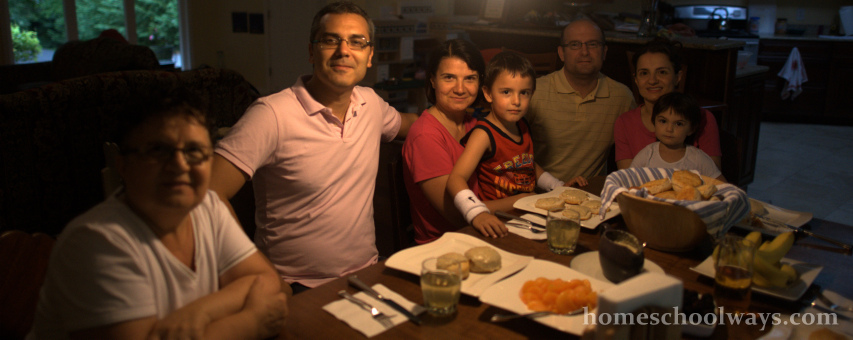The other day I took my son to his science class, organized by our local aquarium specifically for homeschoolers. As I sat there looking at PowerPoint slides of bones and muscles, I also glanced occasionally at the students sitting on the carpet. They interacted well with each other and looked oh, so socialized.
And yet, public/private school parents still believe homeschooling produces social misfits. Mainstream parents also equate schooling with socialization. Generations of parents have been lead to believe that children belong together in age-segregated classrooms. Nothing could be further from the truth.
Here are 5 thoughts that hit me that afternoon during my son’s science class:
1. Introverts will be introverts. My Myers-Briggs profile is INTJ – Introversion, iNtuition, Thinking, Judgment. I attended public school and, before that, I was in day care. I have friends and I enjoy public speaking, but I will always be an introvert. Personality does not change. Shy children will be shy no matter where they went to school.
2. Public school is not the real world. When I was deciding on educational choices for my children, some people encouraged me to send them to public school because “public school is the real world.” Nonsense. Where else in your post-college world will you spend seven hours a day with 25 other people your age?
The best way to socialize a child is by exposing her to different age groups and different social situations – and homeschooling affords that as we take our children to different co-op classes, orchestra events, 4-H groups, mission trips, nursing homes etc. That’s the real world.
3. Do not underestimate the mommy factor. Dr. James Dobson talks and writes frequently about the importance of the mother in the lives of her children. Research shows that children who grow up in the care of somebody else other than their mother show more aggressive behavior and disobedience than those raised at home by their own mom.
4. Socialization is a non-issue. If anybody asks you “What about socialization,” they simply show their ignorance about all the research on the matter. By the way, here are 7 ways to answer the socialization question. Sure, there are some homeschoolers who de-cry their parents’ way of socializing them, but we all know social misfits who attended public school. Homeschoolers will have some bad experiences just as public/private school students will have bad experiences.
5. Spending long periods of time with peers does not lead to higher intelligence. Madeline’s eleven peers wanted their appendix out, too. They saw Madeline, a popular kid, show off a scar as a badge of honor. They also saw the dollhouse and gifts Madeline’s papa sent while she was in the hospital. They did not think about Madeline’s pain. They wanted surgery because Madeline had surgery and she got all that. It’s called peer pressure and not thinking things through – the modus operandi of traditionally-schooled children.
While deciding to homeschool, I struggled with many questions, but socialization was not one of them because I had read the Smithsonian Institution’s recipe for genius and leadership from “The Childhood Pattern of Genius” by H. McCurdy:
a. Children should spend a great deal of time with loving, educationally minded parents;
b. Children should be allowed a lot of free exploration; and
c. Children should have little to no association with peers outside of family and relatives.
Far from producing loners, homeschooling provides a platform for raising leaders and thinkers. Quod erat demonstrandum.
